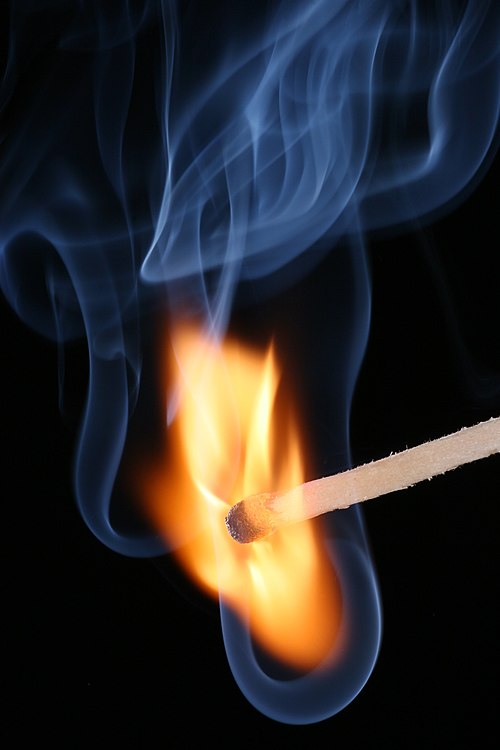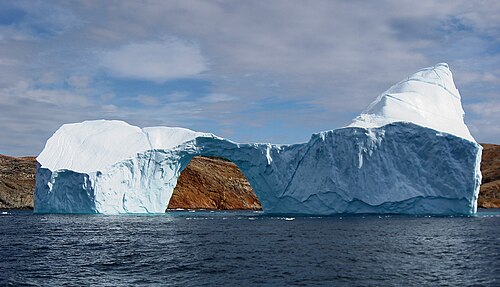Firenoun
(uncountable) A (usually self-sustaining) chemical reaction involving the bonding of oxygen with carbon or other fuel, with the production of heat and the presence of flame or smouldering.
Firenoun
(countable) An instance of this chemical reaction, especially when intentionally created and maintained in a specific location to a useful end (such as a campfire or a hearth fire).
Firenoun
(countable) The occurrence, often accidental, of fire in a certain place, causing damage and danger.
Firenoun
The aforementioned chemical reaction of burning, considered one of the Classical elements or basic elements of alchemy.
Firenoun
A heater or stove used in place of a real fire (such as an electric fire).
Firenoun
(countable) The elements necessary to start a fire.
Firenoun
(uncountable) The bullets or other projectiles fired from a gun.
Firenoun
Strength of passion, whether love or hate.
Firenoun
Liveliness of imagination or fancy; intellectual and moral enthusiasm.
Firenoun
Splendour; brilliancy; lustre; hence, a star.
Firenoun
(countable) A button (on a joypad, joystick or similar device) usually used to make a video game character activate a weapon/
Fireverb
(transitive) To set (something, often a building) on fire.
Fireverb
(transitive) To heat as with fire, but without setting on fire, as ceramic, metal objects, etc.
Fireverb
(transitive) To drive away by setting a fire.
Fireverb
(transitive) To terminate the employment contract of (an employee), especially for cause (such as misconduct or poor performance).
Fireverb
(transitive) To shoot (a gun or analogous device).
Fireverb
(intransitive) To shoot a gun, cannon, or similar weapon.
Fireverb
To shoot; to attempt to score a goal.
Fireverb
To cause an action potential in a cell.
Fireverb
(transitive) To forcibly direct (something).
Fireverb
To initiate an event (by means of an event handler).
Fireverb
To inflame; to irritate, as the passions.
Fireverb
To animate; to give life or spirit to.
Fireverb
To feed or serve the fire of.
Fireverb
To light up as if by fire; to illuminate.
Fireverb
(farriery) To cauterize.
Fireverb
To catch fire; to be kindled.
Fireverb
To be irritated or inflamed with passion.
Fireadjective
(slang) Amazing; excellent.
Fireinterjection
A cry of distress indicating that something is on fire, or that there is a fire.
Fireinterjection
A signal to shoot.
Firenoun
The evolution of light and heat in the combustion of bodies; combustion; state of ignition.
Firenoun
Fuel in a state of combustion, as on a hearth, or in a stove or a furnace.
Firenoun
The burning of a house or town; a conflagration.
Firenoun
Anything which destroys or affects like fire.
Firenoun
Ardor of passion, whether love or hate; excessive warmth; consuming violence of temper.
Firenoun
Liveliness of imagination or fancy; intellectual and moral enthusiasm; capacity for ardor and zeal.
Firenoun
Splendor; brilliancy; luster; hence, a star.
Firenoun
Torture by burning; severe trial or affliction.
Firenoun
The discharge of firearms; firing; as, the troops were exposed to a heavy fire.
Fireverb
To set on fire; to kindle; as, to fire a house or chimney; to fire a pile.
Fireverb
To subject to intense heat; to bake; to burn in a kiln; as, to fire pottery.
Fireverb
To inflame; to irritate, as the passions; as, to fire the soul with anger, pride, or revenge.
Fireverb
To animate; to give life or spirit to; as, to fire the genius of a young man.
Fireverb
To feed or serve the fire of; as, to fire a boiler.
Fireverb
To light up as if by fire; to illuminate.
Fireverb
To cause to explode; as, to fire a torpedo; to disharge; as, to fire a rifle, pistol, or cannon; to fire cannon balls, rockets, etc.
Fireverb
To drive by fire.
Fireverb
To cauterize.
Fireverb
to dismiss from employment, a post, or other job; to cause (a person) to cease being an employee; - of a person. The act of firing is usually performed by that person's supervisor or employer.
Fireverb
To take fire; to be kindled; to kindle.
Fireverb
To be irritated or inflamed with passion.
Fireverb
To discharge artillery or firearms; as, they fired on the town.to grow irritated or angry.
Firenoun
the event of something burning (often destructive);
Firenoun
the process of combustion of inflammable materials producing heat and light and (often) smoke;
Firenoun
the act of firing weapons or artillery at an enemy;
Firenoun
a fireplace in which a fire is burning;
Firenoun
intense adverse criticism;
Firenoun
feelings of great warmth and intensity;
Firenoun
once thought to be one of four elements composing the universe (Empedocles)
Firenoun
a severe trial;
Fireverb
start firing a weapon
Fireverb
cause to go off;
Fireverb
bake in a kiln so as to harden;
Fireverb
terminate the employment of;
Fireverb
go off or discharge;
Fireverb
drive out or away by or as if by fire;
Fireverb
call forth (emotions, feelings, and responses);
Fireverb
destroy by fire;
Fireverb
provide with fuel;
Fire
Fire is the rapid oxidation of a material in the exothermic chemical process of combustion, releasing heat, light, and various reaction products. Fire is hot because the conversion of the weak double bond in molecular oxygen, O2, to the stronger bonds in the combustion products carbon dioxide and water releases energy (418 kJ per 32 g of O2); the bond energies of the fuel play only a minor role here.
Waternoun
(uncountable) A substance (of molecular formula H₂O) found at room temperature and pressure as a clear liquid; it is present naturally as rain, and found in rivers, lakes and seas; its solid form is ice and its gaseous form is steam.
Waternoun
The liquid form of this substance: liquid H₂O.
Waternoun
(countable) A serving of liquid water.
Waternoun
The aforementioned liquid, considered one of the Classical elements or basic elements of alchemy.
Waternoun
Water in a body; an area of open water.
Waternoun
A body of water, almost always a river.
Waternoun
A combination of water and other substance(s).
Waternoun
Mineral water.
Waternoun
Spa water.
Waternoun
(pharmacy) A solution in water of a gaseous or readily volatile substance.
Waternoun
Urine.
Waternoun
Amniotic fluid; used only in the plural in the UK but often also in the singular in North America, especially to avoid cacophony, as in this example: (The Merriam-Webster Medical Dictionary says "often used in plural; also: bag of waters")
Waternoun
Fluids in the body, especially when causing swelling.
Waternoun
A state of affairs; conditions; usually with an adjective indicating an adverse condition.
Waternoun
A person's intuition.
Waternoun
Excess valuation of securities.
Waternoun
The limpidity and lustre of a precious stone, especially a diamond.
Waternoun
A wavy, lustrous pattern or decoration such as is imparted to linen, silk, metals, etc.
Waterverb
(transitive) To pour water into the soil surrounding (plants).
Waterverb
(transitive) To wet or supply with water; to moisten; to overflow with water; to irrigate.
Waterverb
(transitive) To provide (animals) with water for drinking.
Waterverb
(intransitive) To get or take in water.
Waterverb
To urinate onto.
Waterverb
(transitive) To dilute.
Waterverb
To overvalue (securities), especially through deceptive accounting.
Waterverb
(intransitive) To fill with or secrete water.
Waterverb
(transitive) To wet and calender, as cloth, so as to impart to it a lustrous appearance in wavy lines; to diversify with wavelike lines.
Waternoun
The fluid which descends from the clouds in rain, and which forms rivers, lakes, seas, etc.
Waternoun
A body of water, standing or flowing; a lake, river, or other collection of water.
Waternoun
Any liquid secretion, humor, or the like, resembling water; esp., the urine.
Waternoun
A solution in water of a gaseous or readily volatile substance; as, ammonia water.
Waternoun
The limpidity and luster of a precious stone, especially a diamond; as, a diamond of the first water, that is, perfectly pure and transparent. Hence, of the first water, that is, of the first excellence.
Waternoun
A wavy, lustrous pattern or decoration such as is imparted to linen, silk, metals, etc. See Water, v. t., 3, Damask, v. t., and Damaskeen.
Waternoun
An addition to the shares representing the capital of a stock company so that the aggregate par value of the shares is increased while their value for investment is diminished, or "diluted."
Waterverb
To wet or supply with water; to moisten; to overflow with water; to irrigate; as, to water land; to water flowers.
Waterverb
To supply with water for drink; to cause or allow to drink; as, to water cattle and horses.
Waterverb
To wet and calender, as cloth, so as to impart to it a lustrous appearance in wavy lines; to diversify with wavelike lines; as, to water silk. Cf. Water, n., 6.
Waterverb
To add water to (anything), thereby extending the quantity or bulk while reducing the strength or quality; to extend; to dilute; to weaken.
Waterverb
To shed, secrete, or fill with, water or liquid matter; as, his eyes began to water.
Waterverb
To get or take in water; as, the ship put into port to water.
Waternoun
binary compound that occurs at room temperature as a clear colorless odorless tasteless liquid; freezes into ice below 0 degrees centigrade and boils above 100 degrees centigrade; widely used as a solvent
Waternoun
the part of the earth's surface covered with water (such as a river or lake or ocean);
Waternoun
facility that provides a source of water;
Waternoun
once thought to be one of four elements composing the universe (Empedocles)
Waternoun
liquid excretory product;
Waternoun
a fluid necessary for the life of most animals and plants;
Waterverb
supply with water, as with channels or ditches or streams;
Waterverb
provide with water;
Waterverb
secrete or form water, as tears or saliva;
Waterverb
fill with tears;
Waternoun
a colourless, transparent, odourless liquid that forms the seas, lakes, rivers, and rain and is the basis of the fluids of living organisms
Waternoun
water as supplied to houses or commercial establishments through pipes and taps
Waternoun
one of the four elements in ancient and medieval philosophy and in astrology (considered essential to the nature of the signs Cancer, Scorpio, and Pisces)
Waternoun
the water of a mineral spring as used medicinally for bathing in or drinking
Waternoun
a solution of a specified substance in water
Waternoun
a stretch or area of water, such as a river, sea, or lake
Waternoun
the surface of an area of water
Waternoun
found in, on, or near areas of water
Waternoun
the water of a particular sea, river, or lake
Waternoun
an area of sea regarded as under the jurisdiction of a particular country
Waternoun
urine
Waternoun
the amniotic fluid surrounding a fetus in the womb, especially as discharged in a flow shortly before birth
Waternoun
the quality of transparency and brilliance shown by a diamond or other gem.
Waternoun
capital stock that represents a book value greater than the true assets of a company.
Waterverb
pour or sprinkle water over (a plant or area) in order to encourage plant growth
Waterverb
give a drink of water to (an animal)
Waterverb
(of a river) flow through (an area of land)
Waterverb
take a fresh supply of water on board (a ship or steam train)
Waterverb
(of a person's eyes) fill with tears
Waterverb
(of a person's mouth) produce saliva, typically in response to the sight or smell of appetizing food
Waterverb
dilute or adulterate (a drink, typically an alcoholic one) with water
Waterverb
make a statement or proposal less forceful or controversial by changing or leaving out certain details
Waterverb
increase (a company's debt, or nominal capital) by the issue of new shares without a corresponding addition to assets.
Water
Water (chemical formula H2O) is an inorganic, transparent, tasteless, odorless, and nearly colorless chemical substance, which is the main constituent of Earth's hydrosphere and the fluids of all known living organisms (in which it acts as a solvent). It is vital for all known forms of life, even though it provides no calories or organic nutrients.














